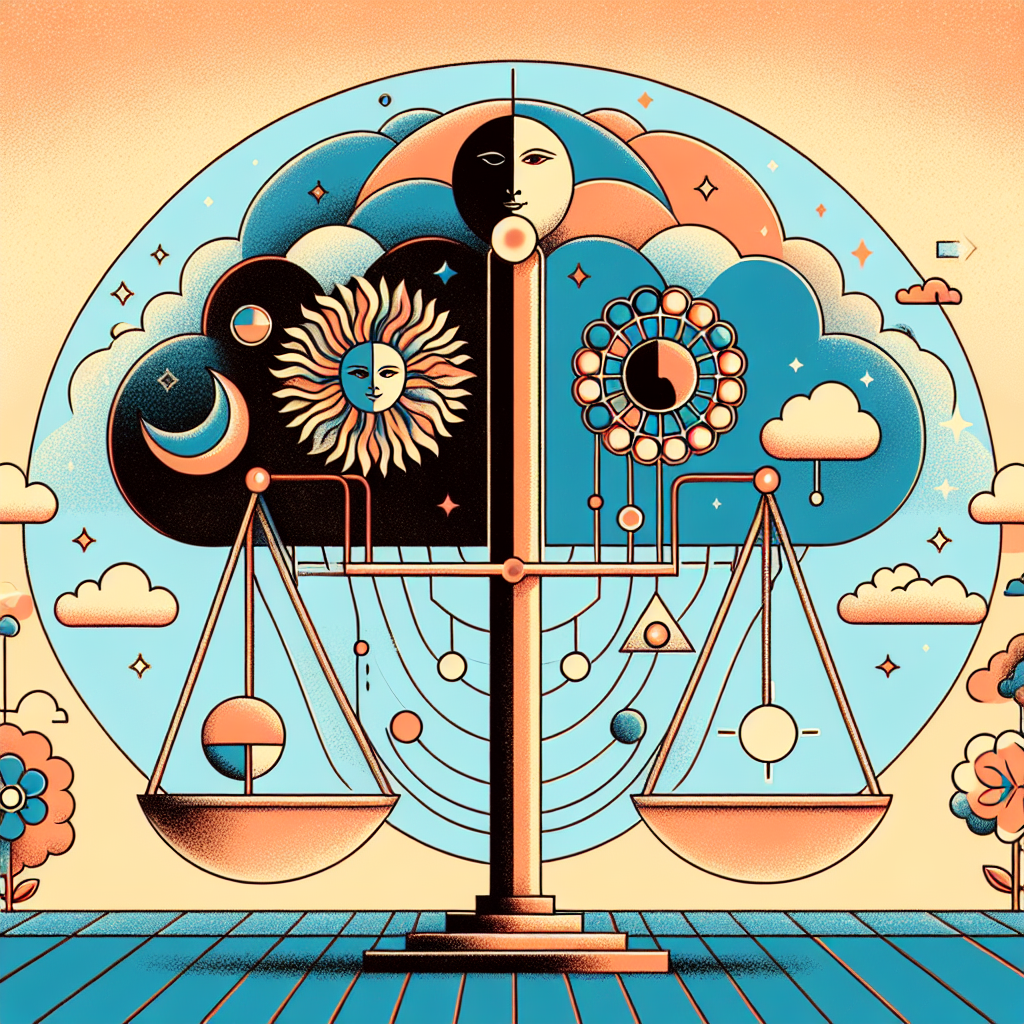Karma is a profound concept found in spiritual and philosophical traditions, particularly within Hinduism and Buddhism. The term itself means “action” or “deed” and signifies the principle of cause and effect where an individual’s actions influence their future experiences.
The idea of karma extends beyond the realms of spirituality, offering insight into our daily lives and choices. By understanding how our actions impact ourselves and others, we can navigate our lives with greater purpose, intention, and compassion.
Understanding Karma
The Foundations of Karma
At its core, karma resonates with the age-old adage, “What goes around comes around.” This principle asserts that every action triggers a corresponding reaction, shaping the circumstances we encounter in the present and future.
Karma can be divided into three types:
- Sanskrit Terms: “Sanchita” (accumulated karma), “Prarabdha” (the karma currently being experienced), and “Kriyamana” (karma being created in the present).
- Immediate and Delayed Effects: Some actions yield immediate feedback, while others may take time to manifest.
- Collective Karma: The shared actions of groups influencing society as a whole.
Karma and Human Behavior
Our understanding of karma significantly shapes our actions and decisions. When we recognize that our choices influence not only our lives but also the lives of others, we become more mindful in our approach to everyday interactions.
This awareness can cultivate a sense of responsibility, prompting us to consider the longer-term impacts of our actions.
Karma in Daily Choices
Decision Making Framework
When faced with decisions, the idea of karma can act as a moral compass. Here’s how it infuses clarity and purpose into our daily choices:
- Intent: Understanding the intention behind our actions is crucial. Positive intentions yield positive karma; malicious or selfish intentions lead to negative consequences.
- Reflection on Consequences: Before making a choice, reflecting on the potential outcomes can help align our decisions with our values and the greater good.
- Compassion and Empathy: Considering how our actions affect others encourages us to act with kindness, promoting a cycle of positive karma.
Everyday Scenarios
Let’s delve into how karma can influence specific daily situations:
Personal Relationships
In relationships, our words and actions hold significant weight. Whether it’s offering support to a friend in need or expressing gratitude to a family member, we must recognize the impact of our contributions.
A small gesture of kindness might inspire a ripple effect, encouraging others to pay it forward and thus creating a positive atmosphere that benefits everyone involved.
Work Environment
In a workplace setting, the choices we make can either cultivate collaboration or breed discontent. Positive actions, such as acknowledging a colleague’s hard work or assisting with a project, contribute to a harmonious workplace environment.
Conversely, negative actions—such as gossip or credit-stealing—can lead to toxicity and disharmony, ultimately impacting everyone’s success and well-being.
Community Involvement
On a larger scale, our choices influence the greater community. Volunteering, supporting local businesses, and participating in community events create positive karma that can uplift entire neighborhoods.
Additionally, engaging in social causes, such as environmental protection or social justice, helps to create collective karma that can lead to significant societal change.
Personal Development through Karma
Self-Reflection and Growth
Acknowledging karma in our lives fosters a habit of self-reflection. Considering how our choices align with our values can lead us toward personal growth and fulfillment.
Individuals often embark on a journey of self-discovery, reassessing their motivations, passions, and impact on others, leading to a more authentic life aligned with their true self.
Mindfulness and Presence
Practicing mindfulness allows us to live in the moment and make deliberate choices, reducing impulsive or harmful reactions. This mindfulness is essential for recognizing the present situation’s complexities, enabling us to navigate challenges with grace.
Being present also enhances our ability to empathize with others, reinforcing the positive karmic cycle within our interactions.
The Interplay Between Karma and Fate
Karma vs. Fate
Often, people confuse karma with fate. While fate implies a predetermined destiny, karma emphasizes the influence of individual actions on life’s trajectory. This understanding acknowledges that while certain life situations may be beyond our control, our responses to those situations shape our personal journey.
Acknowledging the interplay between karma and fate empowers us to take proactive steps toward positive outcomes, regardless of life’s unpredictabilities.
Real-Life Examples of Karma in Action
Famous Personalities
Many renowned figures exemplify the principles of karma in action. Thought leaders, philanthropists, and activists often embody the idea of ‘what you give is what you get,’ demonstrating how positive actions can lead to widespread influence and legacy.
Historical events, such as the civil rights movement, showcase collective karma. The acts of courage and compassion from individuals collectively resulted in societal change, demonstrating the profound impact of actions motivated by justice and equality.
Conclusion
Understanding the influence of karma on our daily choices invites us to live with greater awareness and intention. The recognition that our actions have repercussions shapes our behavior, fostering empathy, kindness, and responsibility towards ourselves and others.
By embracing the principles of karma, we can cultivate positive personal and societal change, creating a cycle of goodwill that echoes far beyond our immediate circles. As we navigate our lives, let’s choose actions that reflect our highest values, nurturing a more compassionate world.
FAQs
What is karma?
Karma is the principle of cause and effect, where an individual’s actions and intentions influence their future experiences. It is often associated with the belief that good deeds lead to positive outcomes, while negative actions invite adverse consequences.
How does karma influence my choices?
Karma encourages mindfulness and self-reflection. By understanding the potential impact of your actions on yourself and others, you can make more conscious decisions that align with your values and the greater good.
Can karma change my life?
Yes, engaging with the principles of karma can lead to transformative changes in your life. By choosing positive actions and intentions, you can create a ripple effect of goodness, influencing your own experiences and those around you.
Is karma always immediate?
No, the effects of karma are not always immediate. Some actions may produce an instant outcome, while others may take time to manifest. The principle underscores that every action will eventually yield some consequence, regardless of the timing.
How can I cultivate positive karma?
You can cultivate positive karma by acting with kindness, compassion, and integrity. Engaging in acts of service, practicing gratitude, and consciously choosing to support others positively influence the karma you accumulate.
It seems like your message got cut off. Could you please provide more details or clarify what you need help with? Whether it’s a writing prompt, a question, or anything else, I’m here to assist!, #Karma #Influences #Daily #Choices, #Karma #Influences #Daily #Choices, 1736665805, how-karma-influences-your-daily-choices





